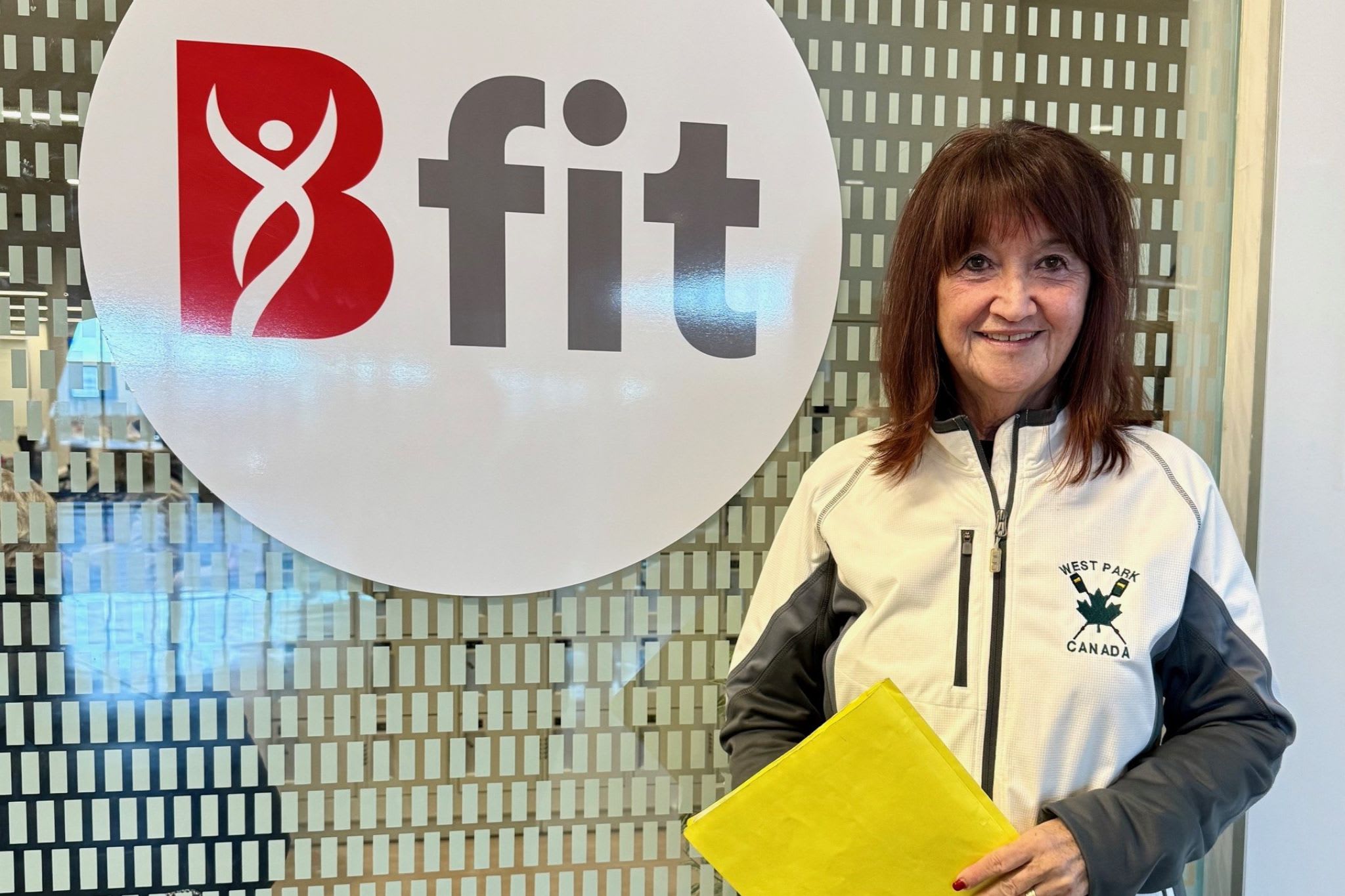This is an opinion column by Niagara Health Communications Specialist Micaela Grant, originally published in the St. Catharines Standard, Niagara Falls Review and Welland Tribune.

St. Catharines resident Renate Hodges hopes her experiences will serve as a reminder to women to educate themselves on heart health and trust their instincts when feeling unwell.
When Renate Hodges woke up in the early hours of Sept. 11, 2024, she had no idea her life was about to change.
The 71-year-old St. Catharines resident, an active volunteer and primary caregiver to her nearly 100-year old mother, experienced jaw pain severe enough to scare her.
“I knew something wasn’t right,” Hodges recalls. Her intuition, paired with a quick online search about symptoms women experience during a heart attack, led her to immediately go to the Marotta Family Hospital.
When she got to the Emergency Department (ED), Hodges told the triage nurse her concerns. Despite having no other obvious symptoms of a heart attack, such as chest pain, her condition was taken seriously.
“I told the nurse, ‘I need someone to tell me I’m not having a heart attack,’” she says. Within minutes, Hodges was taken for an electrocardiogram (ECG), and her worst fear was confirmed: she was indeed having a heart attack.
“I was in shock. I couldn’t believe it.”
The rapid response of the Marotta Family ED team was pivotal. Within 20 minutes of her diagnosis, Hodges was placed in an ambulance en route to Hamilton General Hospital for specialized cardiac care.
Niagara Health works closely with Hamilton Health Sciences to provide Niagara patients with advanced cardiac treatment and interventions that are not available locally, ensuring seamless access to life-saving care.
Hodges’ nurse, who was the first to assess her in St. Catharines, went with her, ensuring continuity of care and providing Hodges with reassurance and support during her journey.
“When you’re petrified, having a nurse who truly cares about your health and outcomes makes all the difference,” Hodges says. “She didn’t leave my side until I was handed over to the diagnostic imaging team in Hamilton.”
At Hamilton General, Hodges underwent a stent procedure in the Heart Investigation Unit to restore blood flow. Despite the stressful circumstances, she felt well-informed and supported. Two days later, she was transferred back to the Marotta Family Hospital for further monitoring in the Intensive Care Unit before being sent home.
“The handover between hospitals was seamless,” Hodges says. “The communication and coordination were exceptional. It’s clear [the hospitals] work together as a well-oiled machine.”
Hodges’ experience highlights an often overlooked aspect of heart health: the unique symptoms women may face during a heart attack. According to the Heart and Stroke Foundation, women can experience symptoms such as jaw pain, dizziness or upper back pressure, which differ from the chest pain typically associated with heart attacks in men.
“Women need to listen to their bodies and not dismiss unusual symptoms,” says Hodges, who is now on a mission to educate others. “I shared a post on social media and because of my experience, four women I know booked appointments with their doctors. We need more education for women about heart health.”
After discharge, Hodges was referred to the Cardiac Rehabilitation Program, a collaboration between Niagara Health and Brock University. Operating out of Brock University’s BFit exercise facility, the program helps patients recover from cardiac events through supervised exercise, nutritional guidance and stress management.
“The cardiac rehab program supports patients who have experienced a heart condition or have had a heart procedure such as a heart attack, heart failure, post bypass, stent procedure or other heart related disorder,” says David Della Ventura, Kinesiologist with the program.
“The benefit of cardiac rehab is to improve the fitness of the heart, but at the same time lower risk factors for heart disease such as blood pressure, cholesterol, weight and blood sugars. This drastically lowers the risk of having a subsequent heart event in the future and ending up back in the hospital. It also helps patients return to their normal lifestyle activities without limitations.”
“It’s a lifesaver,” says Hodges. “I’ve met others who’ve gone through similar experiences, it has created a support network that’s invaluable.”
Hodges credits the program with helping her regain confidence and build a heart-healthy lifestyle. “You learn that you’re not alone and that recovery is possible with the right support.”
Hodges’ biggest takeaway from her experience is the unseen efforts of hospital staff, particularly in ED triage. “What people don’t realize is while they are waiting to be seen, there is triage happening behind the scenes, prioritizing life-or-death situations,” she says.
She hopes her experience serves as an important piece of education for the public. “Understanding what’s happening beyond the waiting room can make a big difference. Maybe your condition doesn’t warrant a trip to the ED and could be better seen by a walk-in clinic or family doctor,” she says.
Now back to her active life, Hodges is grateful for the care she received.
“The teams at the Marotta Family Hospital and Hamilton General were exceptional. They saved my life,” she says. “From the initial diagnosis to the rehabilitation post-discharge, I always felt supported.”
Her advice to others is simple yet profound: “Trust your instincts, seek help when something feels off and don’t ignore the warning signs – it could save your life.”
Women’s signs of heart attack
The most common heart attack sign is chest pain or discomfort; however, women can experience a heart attack without chest pressure. If you experience any of these signs, call 911 or get to a hospital right away.
- Shortness of breath with or without chest discomfort
- Pressure of pain in the lower chest or upper abdomen
- Dizziness, lightheadedness or fainting
- Pain or discomfort in arms, back, neck, jaw or stomach
- Extreme fatigue
- Breaking out in a cold sweat

